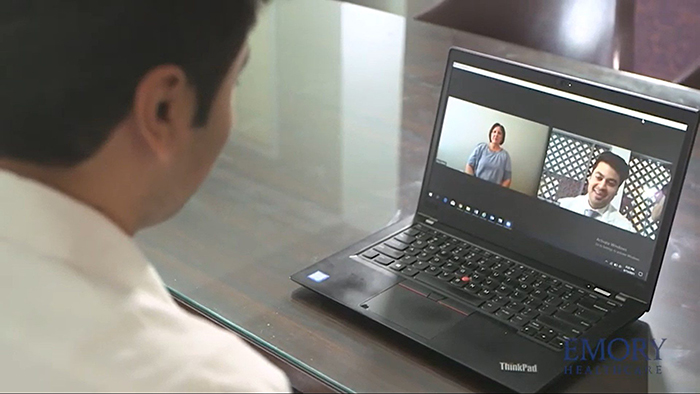The Emory transplant program is ranked among the nation’s best. In total, we’ve performed more than 10,000 solid organ transplants at the Emory Transplant Center, giving us experience few other centers can match. More than 2,700 of these have occurred through our Liver Transplant Program.
Emory is an international leader in liver transplant research and offers treatments that only a limited number of transplant centers in the U.S do. The hospital is also the only one in Georgia to provide an intensive care unit (ICU) that focuses on liver failure and liver transplant.
“Having a dedicated liver ICU really makes a positive impact for our patients,” says Dr. Vora.
The Liver ICU makes it easier to identify issues at an earlier point and enables staff to provide care that helps critically ill patients make it to transplant. Once they receive their new liver, patients do very well. The most recent statistics show that at Emory we treat people who tend to be sicker than average liver failure patients. But at 96 percent, our one-year survival rate for liver transplant patients is higher than the national average.
A New Chance at Life
Stacy has come a long way from hearing she might not leave the hospital. Today, she’s doing well. And what makes her story even more remarkable is that she went from having her first telehealth appointment sitting in her living room to getting her liver transplant in just 17 days.
That speed is not uncommon at Emory. In 2020, more than half of all liver failure patients received their new liver within one month of being placed on the organ donation list.
“From the very first appointment that morning to the second I walked out of the hospital on the 25th, everything went smoothly and everyone at Emory was helpful.”
Thank you’s aren’t adequate to express her gratitude, she says. But she does want Dr. Vora to know what his care has meant to her.
“I appreciate him giving me a chance,” she says. “Giving me a chance to be a mom again. Be a sister. Be a daughter. Just giving me a chance to be able to walk out of the hospital.”
For more information about the Emory Transplant Center, visit emoryhealthcare.org/transplant or call 855-366-7989.




